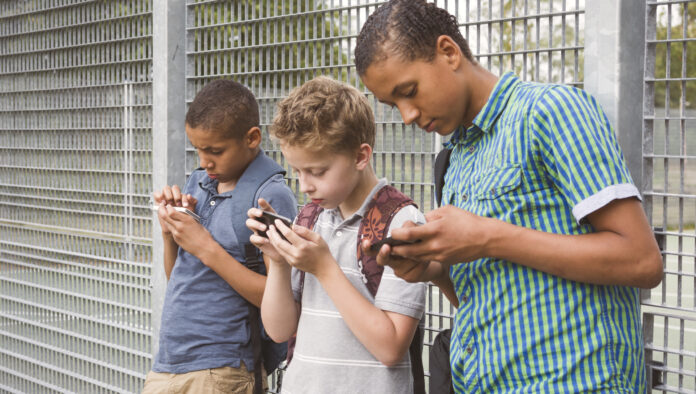Apple introduced Screen Time as a way for people to monitor and limit how much time they spend swiping and scrolling on their iPhones and iPads. You can tell your phone to lock you out of addictive apps like TikTok after a set amount of time, or use parental controls to shut down your kids’ access to their devices when necessary.
Kids are crafty, however. And Screen Time is not perfect. So there’s a chance your tween or teen has outsmarted your efforts to stop them from texting or playing Roblox into the wee hours. Here are some of the common Screen Time workarounds parents should know about (and crack down on, where possible).
1. Asking for ‘One More Minute’
No matter how you lock down Screen Time, kids can get an extra minute of usage within an app without your permission. Once the time limit screen appears, they can tap Ask For More Time and choose One More Minute. This will allow your child to get into the app for an extra minute each day even after they reach the set time limit. While this can be a helpful feature to give adults time to finish out what they were doing before putting the device down, it gives children more screen time than parents probably planned.
As this lengthy thread on Apple’s forums(Opens in a new window) demonstrates, kids are using this loophole in clever ways to give themselves hours more screen time than parents intended. And Apple doesn’t offer an easy way to disable the “one more minute” prompts. If your kid is scrolling their favorite apps one minute at a time, it may be time to confiscate their phones at bedtime. (Or, as some on that thread suggest, get an Android phone.)
2. Sending Messages Through Siri
(Credit: PCMag/Apple)
Kids these days don’t have to deal with text message limits. With iMessage and a Wi-Fi connection, they can send messages, photos, and videos with abandon. Screen Time lets you place limits on the Messages app, but your kid can still ask Siri to send messages by voice. This circumvents the need to use the Messages app, and makes the limit you implemented useless. The good news is this hack can be mitigated if you head to Content & Privacy Restrictions > Allowed Apps and disable Siri & Dictation. (Not that this turns off dictation, too.)
3. Accessing Messages Through Screenshots
There are also many loopholes that kids have discovered over the years. For instance, your child can take a screenshot, then use the Share button to send the picture and an attached note to someone else. Similarly, if an old notification from Messages remains on the lock screen, it can be used to open the app, even after the time limit has been reached.
Both of these situations can be prevented by going to Content & Privacy Restrictions > Allowed Apps in Screen Time and removing Messages from the list of apps. Unfortunately, this will prevent your child from sending messages to people in case of an emergency.
4. Watching Recorded Videos
Even if you’ve imposed limitations on the YouTube app, there is a low-tech workaround involving the iPhone’s screen-recording tool. Children can record a YouTube clip—with sound—during the allowed device time, then access the recorded video in the Photos app and view it freely.
Recommended by Our Editors
The Photos app can be limited to prevent them from watching saved videos, but you can also disable the screen-recording feature entirely. Head to Content & Privacy Restrictions > Content Restrictions and select Game Center to turn off the ability to screen record.
5. Deleting and Reinstalling Apps
Your child cannot turn off restrictions on specific apps, but there is an easy way to get rid of them. By deleting an app and then reinstalling it, your child can remove any limitations that you put in place. Prevent this under Content & Privacy Restrictions > iTunes & App Store Purchases and disable the ability to install and delete apps (or even make in-app purchases).
6. Guessing the Passcode
Are you typing your Screen Time passcode in full view of eagle-eyed kids? Apple used to let the screen-recording app capture keyboard taps, allowing kids to begin screen recording before they handed over their device. You’d enter your password and they’d watch the video back later to see your passcode. That’s disabled now, but your kids can still look over your shoulder or try to decipher your finger taps, so enter that passcode while you’re out of their line of sight.
Like What You’re Reading?
Sign up for Fully Mobilized newsletter to get our top mobile tech stories delivered right to your inbox.
This newsletter may contain advertising, deals, or affiliate links. Subscribing to a newsletter indicates your consent to our Terms of Use and Privacy Policy. You may unsubscribe from the newsletters at any time.
Hits: 0


















